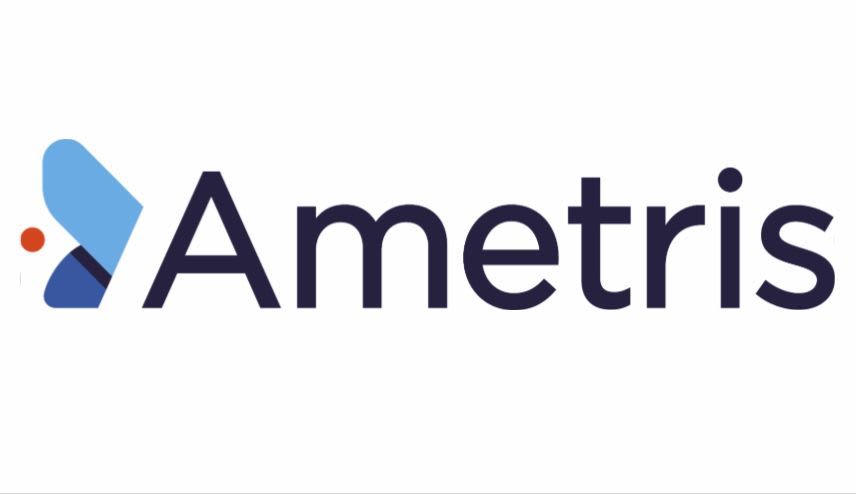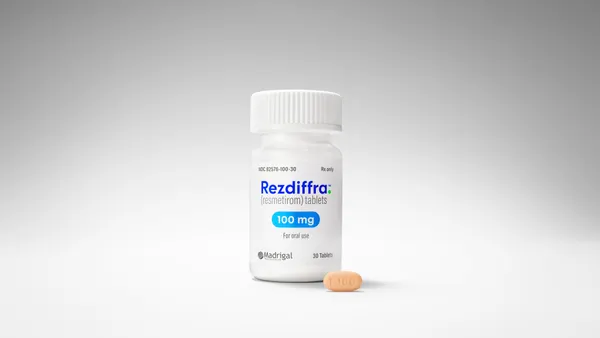PHARMACEUTICAL COMPANIES FACE A MAJOR CHALLENGE: recruiting and training sales reps for their managed care business. Today, there’s much more to courting man agedcare companies, let alone gaining a contract and keeping it. “I have been in this business since 1987, when our focus was staff model HMOs and long term care,” says Ed Szostak, PDI Inc.’s VP of managed markets and trade relations. “Before, it was pret ty straightforward about how we went out and got the business. But today, with the complexity of pharmacy benefit managers and insurance companies intertwining, the dynamics of the market are changing.” Good managedcare account management has two tiers — those at the national account level — the people who call on managedcare organizations and who are charged with getting their company’s products on the formulary and the managedcare sales rep, whose job it is to get that product pulled through. These sales specialists, on both levels, have to approach their managedcare clients more like partners — providing patient education on therapy or adherence to thera py. Pharmaceutical companies need to field highly trained, financially savvy account managers to interface with managedcare companies. These account reps need to be as comfortable dealing with clinical subjects and profit and loss as they are with marketing their product. Some companies undoubtedly are more savvy than others when it comes to interfacing with their client base. According to a recent ScottLevin study, med ical directors, who are key managedcare decisionmakers, named GlaxoSmith Kline as the top pharmaceutical company for overall service. Jackofalltrades Managedcare account reps have arguably one of the most important jobs in the pharmaceutical industry, and it is imperative for pharmaceutical clients to train these specialists to navigate an everchanging landscape. Managedcare reps are required to be a jackofalltrades and masterofall. Mr. Szostak puts it in simple terms: “A $4 billion pharmaceutical company could have an account manager with a $350 million customer. If the manager has a bad day and makes a poor decision on a contract or its terms, and there’s anoth er product out there that could take its place, he or she could lose $20 million for the company.” Managedcare reps need to be aware of, and have a thorough knowledge of, the reimbursement system and the way it works to apply the proper account manage ment strategy. According to industry statistics, about 90% of HMOs now use for mularies — the list of prescription drugs approved for insurance coverage. Drugs are selected principally on the basis of therapeutic value, side effects, and cost. For mularies range in restrictiveness from open, with both listed and nonlisted drugs 34 J a n u a r y / F e b r u a r y 20 0 2 PharmaVOICE MANAGEDCARE Managing The managedcare market is a constantly evolving and dynamic arena, fielding a wellinformed and financially savvy salesforce is paramount to success BY DEBORAH RURIANI P MANAGED CARE marketing 35 PharmaVOICE J a n u a r y / F e b r u a r y 2 0 02 GlaxoSmithKline Pfizer Aventis Merck AstraZeneca Pharmacia American HomeProducts Novartis BristolMyers Squibb Eli Lilly Source:ScottLevin’s Spring 2001 Managed Care Medical Director Promotional Audit 1 2 3 4 5 6 7 7 9 10 MANAGEDCARE: GlaxoSmithKline and Pfizer Score with Medical Directors anagedcare medical directors named GlaxoSmithKline the top pharmaceutical company for overall ser vice, according to the Spring 2001 Managed Care Medical Director Promotional Audit from ScottLevin, Newtown, Pa.The semiannual audit monitors the pharmaceutical industry’s promotional,educational,and clinical activities aimed at medical directors, who are key managedcare decisionmakers.Medical directors assess phar maceutical companies that meet their needs in five areas:clinical objectivity, valueadded services, disease man agement programs,knowledgeable reps, and overall service. In its first appearance in the audit, GlaxoSmithKline was ranked No.1 by medical directors in both the overall and valueadded service categories.The company made the thirdhighest number of contacts to medical directors in the spring. Respondents praised GlaxoSmithKline for its outstanding managedcare reps and for providing clinical support.One medical director said the company “provides financial support and actual programs that are easily integrated into our disease state management programs,”while another complimented the company’s ability to “help with issues that improve care and enhance the bottom line.” M MANAGED CARE marketing reimbursed, to closed, with only listed drugs reimbursed. Springing from this trend toward manag ing drug benfits, say analysts are pharmacy benefit managers, or PBMs, which focus on lowering the cost of drug therapy, while maintaining therapeutic standards of care. PBMs, which were virtually nonexistent until the late 1980s, evolved from insurance claimsprocessing and mailorder prescription companies. PBMs now provide managed pharmacy benefits for about half the insured population in the U.S. PBMs manage pharmaceutical care only, marketing their services to employers, insur ance companies, managedcare groups, and Medicaid. There are about 40 PBMs in the U.S. today, with the top five companies accounting for more than 75% of the market. Building relationships “Today, selling pharmaceuticals in the managedcare marketplace is about informa tion gathering and relationship building,” says Jennifer Gulbrand, managing partner and chief operating officer of Informa Training Partners. “It’s also about getting across the clinical features and benefits of a product as well as its cost implications.” These trends affect all pharmaceutical sales professionals, including field sales representatives, sales managers, and account managers. “Due to the increasing prevalence of man aged care, fieldsales representatives must gather information and build relationships with both physicians and office staff members, including nurses, business managers, and receptionists,” Ms. Gul brand says. “Because of managed care, there are a lot of administrative details that physician offices must handle, and these impact everyone in the office. “Receptionists and busi ness managers must contin ually handle insurance paperwork, nurses must field calls from pharmacists requesting prescription switches, and physicians are often encouraged to practice according to plan guidelines and formularies,” she says. “Reps who can understand what physicians and their staffs are dealing with and how they can potentially help them, are going to be appre ciated.” The worst thing a rep could hear during a sales call used to be, “not on the formulary.” But merely having the drug on the formulary is just the first hurdle on the way to getting scripts filled. Even if a drug is on the formula ry, getting it pulled through can be difficult, especially for those reps not versed in the ways of managed care. “In addition to calling on physicians and their staffs to gain information and build rela tionships, field reps also can learn about their marketplace by calling on local retail pharma cists,” Ms. Gulbrand says. Pharmacists can 36 J a n u a r y / F e b r u a r y 20 0 2 PharmaVOICE G laxoSmithKline generated the highest ratings for its contacts among the corporations most actively promoting to leading managedcare executives during the second quarter of 2001, according to a CognetX Inc. report. According to the results of CognetX’s PARRx (Promotional Assessment Research) Report,GlaxoSmithKline received the highest overall qualityofcall rating among the 11 corporations that gener ated more than 75 contacts. For all of the secondquarter contacts GlaxoSmithKline made to PARRx panelists, the company received anoverall qualityofcall rat ing of 8.5 on a 1to10 scale (1 being “poor,”10 being “excellent”). Close behind GlaxoSmithKline were Aventis AG and Merck & Co., which placed second and third, respectively, in terms of their call quality ratings. Aventis placed ninth in total contacts,Merck second. Other corporations that garnered overall qualityofcall ratings above 8 included Pharmacia, Novartis Pharmaceuticals,Abbott Lab oratories, and AstraZeneca. Corporations receiving ratings above 7 included American Home Products, Johnson & Johnson, Bristol Myers Squibb, and Pfizer.The overall quality of call is one of 15 indi vidual accountmanager/personnelassessment categories on which PARRx panelists rate corporations, company divisions, and their respective managedcare account executives every quarter. GSK, for example, received its highest secondquarter assess ment rating for level of rapport. Given that successful account per sonnel build strong interpersonal relationships,the rapport attribute can be viewed as a leading gauge for corporation success in the managedcare arena. Aventis scored equally well for several attributes: communica tion skills, dependability, and honesty. Panelists also gave Aventis comparably high marks for its account personnel’s knowledge of managed care. Pharmacydirectors tell CognetX that they respect pharmaceuti cal company personnel who understand the complexity of the dynamic managedcare marketplace. PARRx panelists gave Merck strong ratings for accountability, communications skills, and dependability. GLAXOSMITHKLINE Generates the Most Contacts and the Highest Ratings to ManagedCare Pharmacy Directors Due to the increasing prevalence of managed care, fieldsales representatives must gather information and build relationships with both physicians and office staff members, including nurses, business managers, and receptionists. JENNIFER GULBRAND MANAGED CARE marketing share information on how prescriptions for products are filled and reim bursed by different plans. Knowing this information can help represen tatives better target their sales messages to their customers. A changing market The threetiered copay is another example of how the managedcare market has changed. For example, patients are being charged $5 or $10 for a generic, maybe $10 to $15 for a brand, and $25 to $35 for a non formulary product. Jeff Kanis, VP of pharmaceutical services sales at NDCHealth agrees that account managers have to be on top of copay issues. “One of the fastestgrowing consulting services is in the area of co payment information,” Mr. Kanis says. NDC started providing prescrip tion payment information in 1997 with its Managed Care Monitor and Source Payer. Now the company provides the Managed Care Analyzer and the Navigator, a tool for effectively assessing the business potential of a managedcare organization, which account managers can use before negotiating a contract. “The managedcare portion of our business is growing very rapidly, and represents the largest chunk of our business within the pharmaceuti cal manufacturer segment,” Mr. Kanis says. “Our clients not only want the data, but also an explanation behind the data so managers can make better decisions in their managedcare contracting and how they approach managedcare organizations as a whole.” Among the challenging opportunities that account managers face in MCO contracting, according to Mr. Kanis are: demonstrating the clini cal value of their product and its efficacy in producing positive health outcomes as compared with a competitor’s product. This includes the ability to elaborate on the advantages of their product by patient type and disease state. Also critical is the financial concern — how much of a rebate should be offered for each product or bundle of products. Because account people need to analyze data dealing with prescription sales and threetiered copayments, as well as creating rebates for contract negotiation, they require an exceptional understanding of finance. “The account managers have become an extension of finance,” Mr. Szostak says. “They must understand profit and loss, their own compa ny’s financial position, as well as the position of the MCO they are call ing on — and they have to be effective contract negotiators. Somebody can be a great account manager but if they can’t sell the concepts inter nally within their organization, their ideas will fall on deaf ears. So not only does the account manager have to sell externally, but also internal ly to their own company.” The account manager also must have a thorough knowledge of the products being sold and about the market in general, and have sugges tions for valueadded programs from the clinical side. They need to be wellversed in pharmacoeconomics, diseasestate management, and out come type programs. “For example, clinical education services that drive the product through to the patient are important,” Mr. Kanis says. “This includes literature that educates on the disease state and literature that talks about the product and how it can produce better health outcomes. Sometimes pharmaceutical manufacturers will provide MCOs with case managers to help educate their patient population.” In a recent survey from ScottLevin, 59% of managedcare pharmacy directors said valueadded services reduce their overall costs. “These are real challenges for the account manager,” Mr. Kanis says. “Account managers have to become adept at communicating the clinical value of the product and its efficacy in producing positive health out comes versus the competitive product. This includes the ability to elabo rate on the advantages of their product, by patient type and disease state, including outcomes, which drives the product through to the patient.” Training is key What this all comes down to is increased demands on the account per son, requiring pharmaceutical companies to provide better training at the accountmanagement level. Pharmaceutical companies need to provide integrated orienta tion programs that cover key managedcare issues, providing new reps with a grounding in corporate mission/vision, corporate values, strategies, and customer focus. Tap Pharmaceuticals’ has gotten the mes sage. “I don’t think there’s any company that is more committed to the managedcare opportunity than Tap,” says Chris Compisi, national sales manager for managed care for Tap Pharmaceuticals. In keeping with its commitment to this sector of the industry, Tap has launched a man agedcare training initiative that funnels from management to field sales, Mr. Compisi says. The company has invested in extensive training for its managedcare management group both at the accountmanager level and at the salesrep level. “If a company can’t pull a contract through, it isn’t worth the paper it is written on,” Mr. Compisi says. Tap recently launched an interactive CD detailing its managedcare initia tive. “Our goal is to establish a strong understanding of the under lying principles of managed care so that no matter what the physician’s objection may be, reps have at their fingertips the knowledge that will enable them to drive sales.” For Mr. Szostak, the challenge is to build an effective managedcare accounts group for the sales and marketing company PDI. Until last February, Mr. Szostak was VP of national managedcare health at Novartis Pharmaceuticals. His ini tial task after starting at PDI was to put together a team to market the division’s first product, Ceftin tablets and suspension, which GlaxoSmithKline had outsourced to PDI. In November 2001, PDI announced that it had reached agreement with GlaxoSmithKline to terminate the Ceftin distribu tion agreement effective Feb. 28, 2002. Mr. Szostak’s group would have been responsible for the managedcare account management to ensure that the product gained reimbursement at key insurance com panies and PBMs. On the accountmanagement side, Mr. Szostak says anyone going into this field ideal ly should be a district manager, or someone with three to five years pharmaceutical sales exper ence. “Companies really don’t want to put a new sales representative in a job like this,” he says “Good candidates also come straight from the HMO. These people would fit in very well, understanding a pharmaceuti cal company’s needs in this area.” But while medical directors and pharma cist directors from a managedcare company have a thorough knowledge of the sector, Mr. Szostak says they, too, need some acclimation. “The hard part is the transition to the other side of the desk — to think about pharma rather than HMO,” Mr. Szostak says. “This has been done successfully with Pharm.D.s who come from large HMOs. These people come into the fold of big pharma and are able to adapt and be very successful.” Mr. Kanis says training is essential and the company must ensure that before the account manager goes into the field, they have the key requirements: . Knowledge of products, competitive products, and their product’s clinical and financial advantages versus competitor prod ucts. . Understanding of the MCO’s priorities and focus for the year. For example, if an MCO is focusing on cardiovascular disease or women’s health, the manufacturer must posi tion its products to meet the MCO’s needs. . Ability to disseminate the right informa tion that the MCO wants communicated to its prescribers. For example, what tier of the for mulary a product is on. . Ability to serve the MCO by providing valueadded programs, including “pull MANAGED CARE marketing 38 J a n u a r y / F e b r u a r y 20 0 2 PharmaVOICE Among the challenging opportunities that account managers face in MCO contracting are: demonstrating the clinical value of their product and its efficacy in producing positive health outcomes as compared with a competitor’s product. JEFF KANIS DISEASEMANAGEMENT PARADIGM Future Driver of ManagedCare Diseasemanagement programs are used by managedcare organizations to control costs while improving health outcomes.According to analysts at Friedman, Billings, Ramsey & Co. Inc.,more than half of all HMOs now incorporate disease management programs into healthcare.Under a typical program,a single healthcare provider is responsible for the entire range of services needed by a patient and tries to monitor and coordinate physicianoffice visits, hospitalization, emergencyroom visits, medical tests, the use of supplies,and patient compliance through the use of an integrated information system. Percent of HMOs that have implemented diseasespecific management programs ASTHMA 57.4% Diabetes 50.0% Congestive heart failure 23.3% Breast cancer 20.5% Depression 17.4% Hypercholesterolemia 17.4% HIV/AIDS 15.1% Highblood pressure 13.2% Peptic ulcer 8.9% Prostate cancer 5.4% Osteoporosis 3.9% Allergic rhinitis 2.3% Arthritis 1.9% Source: PhRMA,Interstudy, Interstudy Competitive Edge: HMO Industry Report, 1997, and Friedman,Billings, Ramsey & Co. Inc. MANAGED CARE marketing 40 J a n u a r y / F e b r u a r y 20 0 2 PharmaVOICE through” or providing literature that educates patients on disease states and/or product use. . Ability to provide pricing — the ability to provide good product pricing relative to the Average Wholesale Price and Wholesale Aver age Cost as well as rebates and incentives. “No one is an expert in managed care but we have to be students of the business,” Mr. Szostak says. “If you are not a student, you will get passed by.” One company providing account training management is Informa Training. Ms. Gul brand says the company was founded just three years ago. Informa offers numerous self study and workshop programs that train field sales reps on the basics of managed care and how to best approach their customers in the managedcare environment. “Today’s sales managers must be able to coach their sales reps effectively and integrate marketplace knowledge with their coaching and business planning activities,” Ms. Gul brand says. Informa offers two workshop series that fulfill this need: the Sales Manager Market place Workshop Series and the Management Development Workshop Series. Just as managed care has changed the way field sales reps and sales managers do their jobs, it has also had a major impact on the way account managers approach their accounts. “Account managers must understand how quality, market share, and financial pressures affect every decision made by an MCO,” Ms. Gulbrand says. “To build strong customer relationships, account managers must under stand these three pressures from the viewpoint of their accounts and be able to respond with solutions that help alleviate those pressures. “The managedcare marketplace is a con stantly changing and dynamic environment that pharmaceutical sales professionals need to understand if they are to succeed,” she says. Good managementtraining programs should cover all the basics — from under standing the financial pressures affecting the MCO to understanding disease management and identifying opportunities for valueadded services as well as how accreditation from the National Committee for Quality Assurance and HEDIS impact MCO customers. HEDIS, which is supported by the NCQA, is a set of standardized performance measures designed to give purchasers and consumers the informa tion they need to compare the performance of managedhealthcare plans. The MCO view Financial pressures affect almost every deci sion an MCO makes regarding pharmaceuti cals. To build strong customer relationships, account managers must understand these financial pressures from the viewpoint of their MCOs and be able to respond with solutions that help alleviate those pressures. Bryna Elder, CognetX’s marketing and communications strategist, says there is a def inite trend in which toptier pharmaceutical companies are taking the initiative to provide total portfolio management. “Instead of just coming in to talk about a particular product or brand, sales reps are doing nonproduct specific calls and it is dur ing those calls that reps talk about how they can better serve the client and partner for the long term,” Ms. Elder says. Based on responses she has received through the CognetX Promotional Assess ment Research Report (PARRx), Ms. Elder says an account executive’s knowledge of managed care is vitally important to pharma cy directors. “One thing that comes through time and time again with the companies that ranked best in that category is that not only did they have knowledge of the market, but they were politically savvy about the marketplace and they knew how to maneuver,” Ms. Elder says. The pharmacy side According to Merl Fossen, director of phar macy affairs at the Academy of Managed Care Pharmacists, the academy has developed a for mat for formulary submissions — a tool that the managedcare pharmacy director uses to pull together all the useful clinical and phar macoeconomic data that enables the PNT committee to make evidencebased decisions for their covered populations. “Developed by the academy in the last year or so, the format looks at all the information that will be put out by a drug company relat ed to a drug account — there is a template the drug company uses to put together a formula ry kit. It lays out what should be included in the formulary kit, guidelines for the use of the drug, the product, and the drug’s clinical and economic value and overall costs.” Mr. Fossen says the kit is a template or guide and is not meant to be a mandate or a standard and does not claim to establish a standard of practice for managed care. “All the industry scientists and consultants can submit information on a product’s impact on indirect or nonmedical costs, allowing them to demonstrate the broad value of their products,” he says. “This gives the managed care pharmacists data that were not available in the past. For example, offlabel uses of the product and unpublished studies.” The steps taken by every group involved in the managedcare business seek to ameliorate the process of ensuring that everyone — from the sales rep, to the physician, to the pharma cist, to the MCO — is properly informed. Only with access to the data, and knowledge of what that data mean, can relationships be formed — relationships that will ensure not only a product’s addition to the formulary, but its acceptance within the healthcare industry. F PharmaVoice welcomes comments about this article. Email us at [email protected]. CHRIS COMPISI.National manager man aged care,Tap Pharmaceutical Products Inc., Lake Forest, Ill.; Tap is a joint venture between Abbott Laboratories and Takeda Chemical Industries Ltd. BRYNA ELDER. Marketing and communications strategist, CognetX Inc., Feasterville, Pa.; CognetX offers the phar maceutical industry market research, con sulting, and software development that help companies build and refine their rela tionships with numerous customer bases, including the managedcare community MERLE FOSSEN. Pharm.D., Director of Pharmacy Affairs,The Academy of Managed Care Pharmacy,Alexandria,Va.; AMCP is the national professional society dedicated to the concept and practice of pharmaceutical care in managed health care environments Experts on this topic JENNIFER GULBRAND. Managing partner and chief operating officer, Informa Training Partners,Walpole,Ma.;Informa Training Partners, a subsidiary of Nelson CommunicationsWorldwide,develops pharmaceutical sales training programs that integrate clinical expertise,selling skills, and managedcare marketplace knowledge JEFF KANIS.VP of pharmaceutical services sales, NDCHealth Corp., Atlanta; NDCHealth is a leading of health information services that add value to pharmacy,hospital, physician,pharmaceutical,and payer businesses ED SZOSTAK.VP of managed markets and trade relations, PDI Inc., Lawrenceville,N.J.; PDI,with headquarters in Upper Saddle River, N.J., is a sales and marketing compa ny serving the pharmaceutical,biotech,and medical devices and diagnostics industries
An article from


Managing Managed Care
Filed Under:
Commercialization










